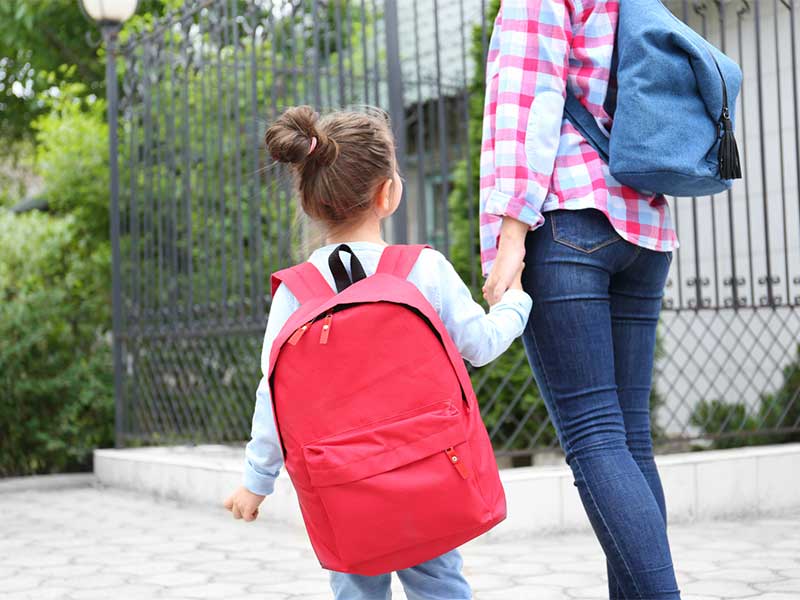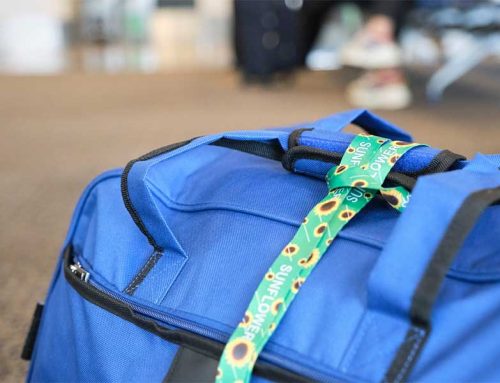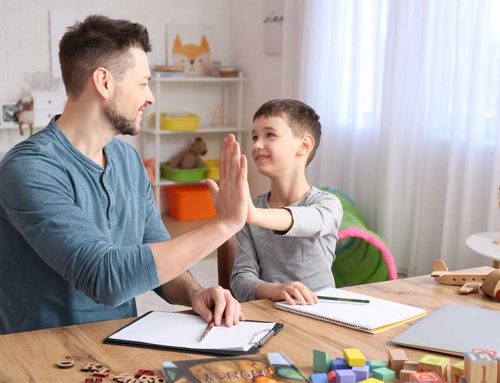The 2023 theme for Children’s Mental Health Week is ‘Let’s Connect’. Whilst connecting is believed to be a given, the limit of our connection is often in the form of instructions to get dressed, encouraging the brushing of teeth and eating food, tidying rooms, reading before bed etc.
Finding the time to connect with your child can be challenging and, with the added constraints of time and high workloads, seemingly impossible. However, creating time and space to connect can be a way of encouraging autonomy, using critical thinking skills as well as supporting speaking and listening abilities.
Tangible opportunities to connect with your child
Finding time to connect with my son, when he was younger, was easy. We both had a shared interest of anything historical – particularly the Egyptian era. At weekends we would traipse around museums and libraries, discovering something new and exciting on each occasion.
We would attempt to re-create an Egyptian sarcophagus, canopic jars and death masks out of plaster and cardboard which he would proudly take to school. He was able to describe to his teacher and peers, in great detail, their historical significance and how they were made in ancient times.
The fact that my son and I are both autistic is a bonus, largely due to our shared challenges with social communication and interaction. Friendships had always been arduous for us, so we became each other’s best friend.
Having a close connection helped us to resonate and understand each other’s idiosyncrasies, whilst our joint interests have strengthened and cemented our bond as he has grown into adulthood. Although he now has an established friendship circle, we continue to have our shared interests and our ‘historical’ bond flourishes.
We managed to sail through the stroppy, wilful, pubescent-angst period of his teenage years. He is now approaching the ripe old age of 20 and his love of music creation and production is evident. He asks my opinion of his latest works and although we appreciate different ‘flavours’ of music we still connect through a mutual appreciation of the sounds he creates.
I truly believe the tangible connections we created together in his younger years will see us long into the future.
Top tips for connecting with your child
Take time to observe and learn
Although this sounds like common sense, we live in a fast-moving society. Technology has, it seems, been seamlessly integrated into our daily lives. Taking time to observe your child and how they experience the world around them provides tremendous insight into how you can support them on their life journey. Observing offers the opportunity to learn about their capabilities and areas where they may require further support – without being overbearing and judgemental. It also helps to support self-esteem as they are able to display their own capabilities. [1]
Encourage divergent thinking
Your child may have a unique and enlightening way of connecting with the world around them. Allow them to show you how they would create or do something, so you can explore together. Thomas Edison was thought to be one of the greatest divergent thinkers of our time. His positive connection with his own mother encouraged him to become one of the most revered and prolific inventors of the 20th century. [2]
Unplug!
Our children are connected to the internet in a multitude of ways. Tablets are provided in many schools to assist with education, gaming for enjoyment as well as socialisation, and there are a variety of streaming platforms that hit the dopamine reward receptor to motivate them to watch more.
However, unplugging one day in the week can help to protect mental health and inspire connection together. The Unplug Collaborative is dedicating two days of unplugging, March 3rd and 4th, 2023. Launched by the Jewish arts and culture non-profit Reboot in 2009 as a ‘grand experiment’, the National Day of Unplugging (NDU) now sees thousands of people across 12 countries stepping away from their computer for 24 hours to spend time in person with friends or family, or simply to have a meaningful conversation about their relationship with technology. [3]
They have a host of suggestions for unplugging and connecting, such as volunteering with your child to give back to the community. Revitalise the art of letter writing and send a card to a distant family member or pen pal. Try your hand at geocaching – the modern version of treasure hunting which utilises the outdoors and is relatively free. It is also a good excuse to dress up like a pirate!
Ask different questions
Have you picked up your child after school and asked them how their day was .. only to be met with a quizzical look? Try asking alternative questions to garner a different response. As well as encouraging speaking and listening skills they can ask you the same questions and see the day from your perspective.
- What did you learn today that you can teach me?
- What is the funniest thing that happened today?
- If you could choose a new name for yourself, what would it be?
- What surprised you today?
- If you could live today, all over again, what would you change?
- What did you do today that made you feel proud?
- Did you see someone being kind?
- If you opened a shop, what would it sell?
- If you could travel in a time machine, where would you go?
- What is your favourite song?
Children’s Mental Health Week encourages connecting in healthy, rewarding and meaningful ways. Hopefully, some of the above suggestions will inspire you to connect with your child in an alternative and fun way.
References
[1] 6 Great Reasons to Observe your child. Available at: https://montessoriapprentice.co.uk/6-great-reasons-to-observe-your-child/.
[2] Dreamers, Discoverers & Dynamos – Lucy Jo Palladino PhD. Available at: https://www.lucyjopalladino.com/dreamers-discoverers-dynamos.
[3] Claudia Erickson, BSW MPH, Director of Strategic Partnerships, Unplug Collaborative






Leave A Comment